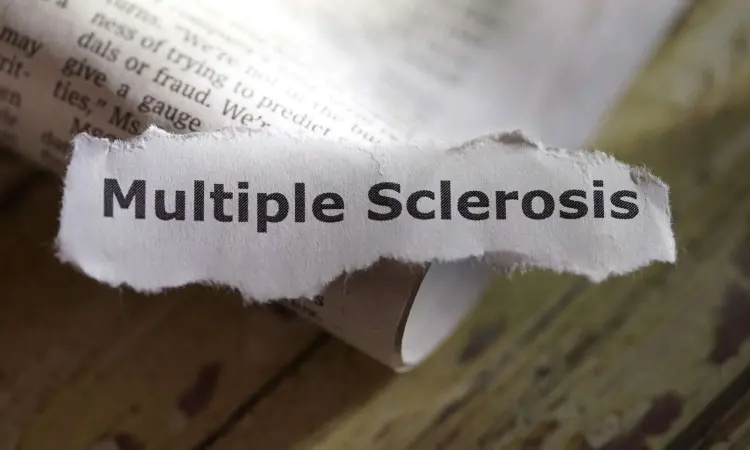- Home
- Medical news & Guidelines
- Anesthesiology
- Cardiology and CTVS
- Critical Care
- Dentistry
- Dermatology
- Diabetes and Endocrinology
- ENT
- Gastroenterology
- Medicine
- Nephrology
- Neurology
- Obstretics-Gynaecology
- Oncology
- Ophthalmology
- Orthopaedics
- Pediatrics-Neonatology
- Psychiatry
- Pulmonology
- Radiology
- Surgery
- Urology
- Laboratory Medicine
- Diet
- Nursing
- Paramedical
- Physiotherapy
- Health news
- Fact Check
- Bone Health Fact Check
- Brain Health Fact Check
- Cancer Related Fact Check
- Child Care Fact Check
- Dental and oral health fact check
- Diabetes and metabolic health fact check
- Diet and Nutrition Fact Check
- Eye and ENT Care Fact Check
- Fitness fact check
- Gut health fact check
- Heart health fact check
- Kidney health fact check
- Medical education fact check
- Men's health fact check
- Respiratory fact check
- Skin and hair care fact check
- Vaccine and Immunization fact check
- Women's health fact check
- AYUSH
- State News
- Andaman and Nicobar Islands
- Andhra Pradesh
- Arunachal Pradesh
- Assam
- Bihar
- Chandigarh
- Chattisgarh
- Dadra and Nagar Haveli
- Daman and Diu
- Delhi
- Goa
- Gujarat
- Haryana
- Himachal Pradesh
- Jammu & Kashmir
- Jharkhand
- Karnataka
- Kerala
- Ladakh
- Lakshadweep
- Madhya Pradesh
- Maharashtra
- Manipur
- Meghalaya
- Mizoram
- Nagaland
- Odisha
- Puducherry
- Punjab
- Rajasthan
- Sikkim
- Tamil Nadu
- Telangana
- Tripura
- Uttar Pradesh
- Uttrakhand
- West Bengal
- Medical Education
- Industry
Cladribine as effective as fingolimod in highly active relapsing multiple sclerosis

Cladribine tablets and fingolimod have similar marketing authorisations in Europe for the treatment of patients with highly active relapsing multiple sclerosis (HA-RMS). In the absence of direct head-to-head studies, real-world data are important to assess the comparative effectiveness of these oral disease-modifying therapies (DMTs).
An original article entitled “Comparative effectiveness of cladribine tablets versus fingolimod in the treatment of highly active multiple sclerosis: A real-world study” by Brownlee et al. compared cladribine therapy with fingolimod therapy in terms of relapse rates among patients with highly active relapsing MS and concluded noninferiority of cladribine treatment compared with fingolimod therapy in terms of relapse rates over a short follow-up period. They related Cladribine tablets to fewer discontinuations and treatment switches.
They added the need for longer follow-ups to determine the maintenance of this effectiveness and the availability of more data about safety and tolerability.
Considering the background, they said, Cladribine tablets and fingolimod have similar marketing authorisations in Europe for managing highly active relapsing multiple sclerosis (HA-RMS) patients.
There is a need for real-world data to assess the comparative effectiveness of these oral disease-modifying therapies (DMTs).
The present study compared relapse rates between patients receiving either cladribine tablets or fingolimod.
The study was conducted in the UK and Germany and assessed non-inferiority in relapse rates of cladribine tablets versus fingolimod in HA-RMS patients.
The results of the study are:
- The cohort had 1,095 HA-RMS patients.
- A total of 610 patients, constituting 55.7%, received cladribine tablets, while 485 patients constituting 44.3%, received fingolimod.
- Some patients discontinued cladribine tablets / switched to another DMT compared to fingolimod (0.2% versus 3.5%, respectively).
- The adjusted annualised relapse rate (ARR) for cladribine tablets and fingolimod was 0.10 and 0.14, respectively.
- The adjusted ARR ratio was 0.68.
In this study, they noted that cladribine tablets were non-inferior to fingolimod one year after treatment initiation.
Further reading:
https://www.msard-journal.com/article/S2211-0348(23)00293-6/fulltext
BDS, MDS in Periodontics and Implantology
Dr. Aditi Yadav is a BDS, MDS in Periodontics and Implantology. She has a clinical experience of 5 years as a laser dental surgeon. She also has a Diploma in clinical research and pharmacovigilance and is a Certified data scientist. She is currently working as a content developer in e-health services. Dr. Yadav has a keen interest in Medical Journalism and is actively involved in Medical Research writing.
Dr Kamal Kant Kohli-MBBS, DTCD- a chest specialist with more than 30 years of practice and a flair for writing clinical articles, Dr Kamal Kant Kohli joined Medical Dialogues as a Chief Editor of Medical News. Besides writing articles, as an editor, he proofreads and verifies all the medical content published on Medical Dialogues including those coming from journals, studies,medical conferences,guidelines etc. Email: drkohli@medicaldialogues.in. Contact no. 011-43720751


